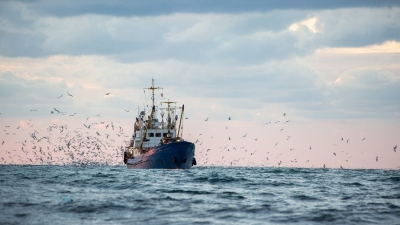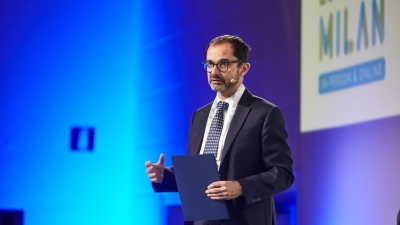Bulgarian farmers to join massive EU-wide protest wave days before bloc elections

Bulgarian farmers will take part in a wave of simultaneous protests in Brussels and EU member states planned for 4 June, just days before the upcoming European Parliament elections, Ilia Prodanov, president of the National Association of Grain Producers, has said.
“The idea is to have a big demonstration both in Brussels and in the states on 4 June,” Prodanov told Bulgarian online newspaper Mediapool.
Prodanov said that the decision to organise the protests had been taken at a joint meeting of European farmers’ organisations in Brussels on 9 and 10 April and that farmers from Spain, Italy, Germany, Belgium, the Netherlands, France, Hungary, Poland, Romania and Greece would join the Bulgarians in protesting on the eve of the European elections.
“For five years in office, MEPs in this European Parliament have not been able to deal with the crises in agriculture, they did not hear the voice of farmers. That is why we have witnessed so many protests in different European countries, fighting against unreasonable EU requirements,” Prodanov said.
On the Bulgarian side, the leadership of the Bulgarian National Association of Grain Producers will hold a meeting on Monday to decide how it will participate in the joint protests in Brussels and its plans for Bulgaria, the association told Euractiv.
European farmers have three key demands, the most important of which is a review of the EU’s commitment to halve pesticide use by 2030, as set out in the European Green Deal.
The second key demand, particularly from farmers in Eastern European countries, is the regulation of Ukrainian agricultural imports. Thirdly, farmers also call for the postponement or complete overhaul of the EU’s Nature Restoration Law, which will affect arable land and livestock grazing by 2050.
In mid-March, Boyko Borissov, the leader of Bulgaria’s conservative party GERB (EPP), spoke of the EPP’s intention to push through a complete overhaul of the EU farm subsidy scheme, ending direct payments for arable land and moving towards a market-based sustainable economy.
“One young farmer tells me he is forced to sell his products cheaper than the cost of production. This is unacceptable. The security of our livelihood depends on the security of our farmers’ livelihoods,” Borissov said at a conference in Plovdiv on 15 March, where he presented the EPP positions on agriculture ahead of the European elections.
The end of direct payments for arable land will hit hardest the large landowners involved in cereal production – some of whom were at the centre of last year’s farmers’ protests, demanding an end to food imports from Ukraine and above-market prices for their sunflower crops.
State Agriculture Fund statistics for 2022 show that the top 20 largest recipients of direct area payments are almost all grain farmers.
Borissov said the EPP would push for real reform of the EU’s Common Agricultural Policy (CAP) in the next European Parliament, which includes reducing the administrative burden, easing environmental requirements, and ending the “budget follows the land” principle.
“Less bureaucracy, easier and quicker procedures, more attention to small and medium-sized enterprises, which are the backbone of the market economy. Businesses must have the freedom to innovate and create jobs. All this also applies to farmers and rural areas, which are the focus of the European People’s Party,” Borissov said.
Regarding food imports from Ukraine, Borissov said that GERB supports Ukraine with military aid, but EU market rules must be respected for Ukrainian food exports.
(Antonia Kotseva, Krassen Nikolov | Euractiv.bg)
Read more with Euractiv




